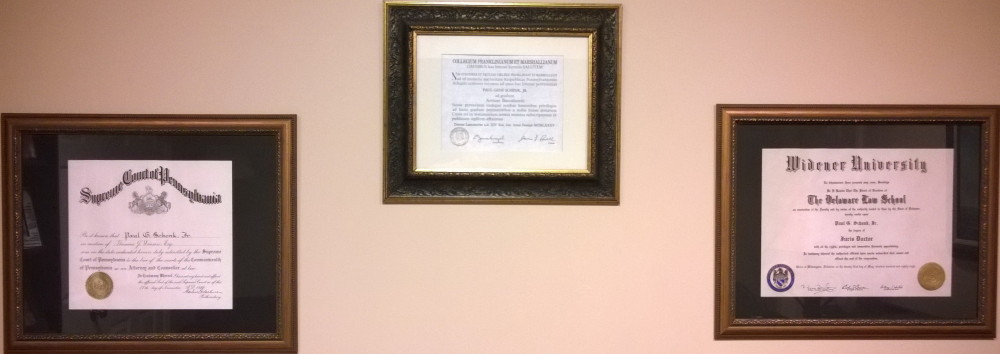THIS ARTICLE IS INTENDED TO SUPPORT THE READER’S AWARENESS AND UNDERSTANDING. IT IS NOT LEGAL ADVICE. IF THE READER SEEKS LEGAL ADVICE CONCERNING HIS OR HER PARTICULAR SITUATION, HE OR SHE SHOULD SEEK OUT AN ATTORNEY IN A LAWYER CLIENT RELATIONSHIP.
A disclaimed inheritance may be subject to a constructive trust in order to disgorge Medicaid benefits that are improperly paid as a result of disclaimant’s failure to inform of his or her acquisition of property while receiving Medicaid benefits, with the State not only seeking reimbursement from any family recipient(s) who were effectively funneled the disclaimed assets, but also potentially initiating criminal or civil action against the disclaimant .
Preliminary Legal Study Basis
In general, a qualified disclaimer is an irrevocable and unqualified refusal to accept the ownership of an interest in property. See 26 CFR § 25.2518-1 (a) (1) . Such a disclaimer is a transfer without value that can affect eligibility for medical assistance ( i.e. medicaid ) payments for long term care benefits. See Schell v. Dept. of Public Welfare, 80 A. 3d 844, 203 C.D. 2013 (Pa. Cmwlth. 2013).
If an individual or the individual’s spouse, any individual or a court or administrative body acting at the direction or upon the request of the individual or the individual’s spouse , or any individual or a court or administrative body with legal authority to act in place of or on behalf of the individual or the individual’s spouse , acts to dispose of or transfers assets that the individual or the individual’s spouse is entitled to for less than fair market value, such as by waiving or disclaiming the right to receive an inheritance of income or resources , the County Assistance Office will apply the fair consideration requirements to the individual who is applying for or receiving medical assistance ( i.e. Medicaid) for long term care services, intermediate care facilities for individuals with intellectual disability, intermediate care facility for persons with other related conditions, or home and community based services. See 6 Health Care Financing Administration State Medicaid Manual, pt. 3, S 3257B (3); 55 Pa. Code 178.104(a),(b) ; Pennsylvania Long Term Care Handbook Chapter 440.812
Assets of an individual or spouse include any income or resources the individual is entitled to get or make available, unless the individual can show good cause for not doing so. See 55 Pa. Code § 178.1(g); 6 Health Care Financing Administration State Medicaid Manual, pt. 3, S 3257B (3); Pennsylvania Long Term Care Handbook Chapter 440.812 . Absent good cause for renouncing or disclaiming an intestate or testate share , the right to renounce or disclaim such a share is irreconcilable with the principle that public aid is of a limited nature and should only be afforded to those who demonstrate legitimate need . See Molloy v. Bane, 214 A.D.2d 171, 631 N.Y.S.2d 910 (1995)
An example of such good cause or legitimate need to disclaim could be a demonstrated legal basis of undue influence to contest disproportionately substantial assets that an individual, who had been in a confidential relationship with a testator of weakened intellect , is disclaiming under that testator’s will. See Thompson Will, 387 Pa. 82, 126 A.2d 740 (1956); . In Re: Estate Of : Gladys M. Reed , Deceased Appeal Of: Janet Reed – J. S58010/17 Decided: November 21, 2017
However, without a good cause or legitimate need to disclaim a testate or intestate share, to permit disclaimed property to pass to transferees free and clear of any obligation would be a violation of public policy. See Troy v. Hart, 697 A.2d 113, 118 (Md. Ct. Spec. App. 1997). A renunciation or disclaimer of a potentially available testate or intestate asset share is the functional equivalent of a transfer of the asset since by refusing to accept it , such asset share is effectively funneled to other familial distributees. See Malloy v. Bane .
Such a disclaimed inheritance can be subject to a constructive trust in order to disgorge the disclaimant’s Medicaid benefits that are improperly paid as a result of disclaimant’s failure to inform of his acquisition of property while receiving Medicaid benefits , with the state not only seeking reimbursement from any family recipient(s) who were effectively funneled the disclaimed assets, but potentially also initiating criminal or civil action against the disclaimant . See See Troy v. Hart citing COMAR 10.09.24.12(B)(6).
.
